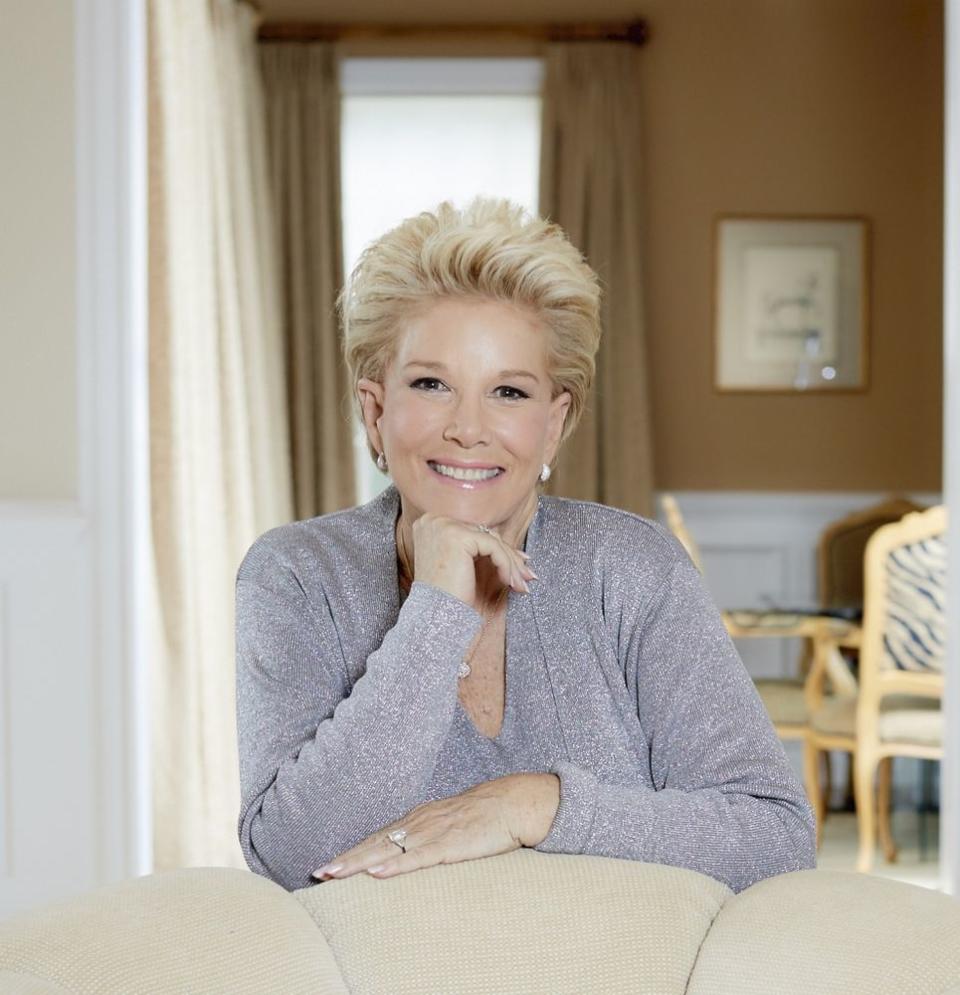How Joan Lunden Cared for Her Mother with Dementia and Became an Advocate for Other Caregivers
For nearly two decades, Joan Lunden was raising seven children and also managing to care for her older brother, Jeff, who had Type II diabetes as well as her mother, Gladyce Blunden, who had dementia.
“I was in my 30s and I became financially responsible for them,” Lunden, 69, tells PEOPLE. “And after a while I learned it would be much wiser to have both of them in one house.”
And for many years, as she worked in New York City and they lived in Los Angeles, it managed to work.
“I would have a caregiver come in every couple of days, take them to doctor’s appointments and help them around the house,” she says.
But after Jeff tragically died in 2007 at just 57 years old, Lunden realized that her mother couldn’t live alone as her dementia progressed rapidly. When Lunden went to visit Gladyce, she couldn’t find her driver’s license, passport and security card. It was time to make a big change.
“I was not only planning a funeral; I was planning a new life for my mom,” she says. “I got thrown into having to find senior living care and I didn’t know anything about it.”
Lunden found herself driving around looking at numerous facilities looking for the best care and activities for her then 87-year-old mother.
“As I went stumbling along down this path of becoming a caregiver, I just said to myself it shouldn’t have to be this hard,” she recalls. “Had I educated myself first it could have been much easier.”
Lunden became passionate about the topic of caregiving and eventually started booking speeches around the country to talk about it. It was then that she discovered A Place for Mom, the largest assisted living referral service in the country, and became a spokesperson for them in 2012. Gladyce passed away in 2013 at the age of 94.

Lunden acknowledges that she, like many other children, “go in with blinders on” when visiting their older parents.
“They don’t want to see all the piles of mail that hasn’t been opened,” says the author. “You’ve got to be snoopy, you’ve got to be like a journalist and do it without upsetting your parents.”
She adds: “But open the refrigerator, find out if the food is fresh. Go in the cabinets, see if the use-by dates are still valid. Go in the bathroom look at the bottles of medicine, see if they’re being compliant taking their medications. And there are a lot of little things you can do. Put night lights all up and down the hall, take away the little throw rugs they might trip on or fall on.”
She found that A Place for Mom offers all of those tips, helps families ask those tough questions, and gets them the help they need.
“I think that the older they get, the harder it is to ask a parent what do you want to do? Do you want to donate organs, do you want to be on life support?” says Lunden. “And when they’re a little bit younger, that’s also the time that you can ask all the questions you want to know about your family.”
It’s not a natural feeling, she adds, to “become the parent to your parent because those are not the roles you’ve known your whole life.”
“This is the person that always had the answers for you, who you always went to,” she says. “That was your go-to person. And now you get to the point where you have to help them know what to wear, where to live. It is just an emotionally bewildering time, I think for everyone.”
Talk to your parents ahead of time about their future to be as prepared as possible, she says.

 Yahoo News
Yahoo News 
